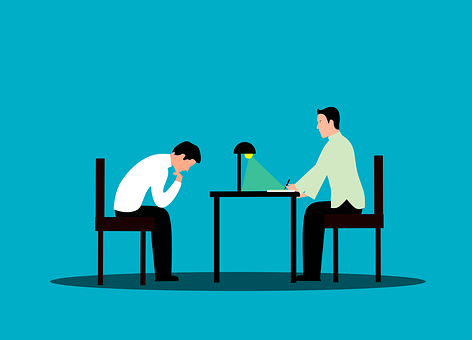Mental Health
Mental Health is a program within the Department of Noncommunicable Diseases and Mental Health (NMH), which promotes, coordinates and implements technical cooperation to strengthen national capacities to develop policies, plans, programs, and services, thus contributing to mental well-being, prevent mental disorders, emphasize recovery, and promote persons with mental disorders to exercise their human rights to attain the highest possible level of health and to contribute to the well-being of families and communities. PAHO/WHO
Mental Health and Human Rights
 People with mental health problems have historically suffered and currently suffer human rights violations. They are also often subject to misconceptions and false beliefs that promote stigmatizing and discriminatory attitudes such as the belief that they are dangerous, have no capacity to make decisions by themselves or are weak, among other.
People with mental health problems have historically suffered and currently suffer human rights violations. They are also often subject to misconceptions and false beliefs that promote stigmatizing and discriminatory attitudes such as the belief that they are dangerous, have no capacity to make decisions by themselves or are weak, among other.
Stigma in Mental Health
 Mental health stigma is one of the most difficult challenges of our time, mainly because it discourages people from seeking help for fear of being labeled. Stigma, discrimination and human rights violations against people with mental health problems are common in communities and care systems everywhere. Respect and support people with lived experience are necessary actions to avoid attitudes of prejudice and discrimination.
Mental health stigma is one of the most difficult challenges of our time, mainly because it discourages people from seeking help for fear of being labeled. Stigma, discrimination and human rights violations against people with mental health problems are common in communities and care systems everywhere. Respect and support people with lived experience are necessary actions to avoid attitudes of prejudice and discrimination.
To know more
- PAHO|WHO - Mental Health
- PAHO|WHO - Protection and promotion of human rights in mental health
- UN Mental Health Matters
- Mental Health.gov
- World Mental Health Day
- World Federation for Mental Health
- Window of Knowledge - Suicide Prevention
- Events - Transforming Mental Health Through Information Systems
Publications
- Deinstitutionalization of Psychiatric Care in Latin America and the Caribbean
- CD60/9 - Strategy for Improving Mental Health and Suicide Prevention in the Region of the Américas
- A New Agenda for Mental Health in the Americas: Report of the Pan American Health Organization High-Level Commission on Mental Health and COVID-19
- Clinical descriptions and diagnostic requirements for ICD-11 mental, behavioural and neurodevelopmental disorders
